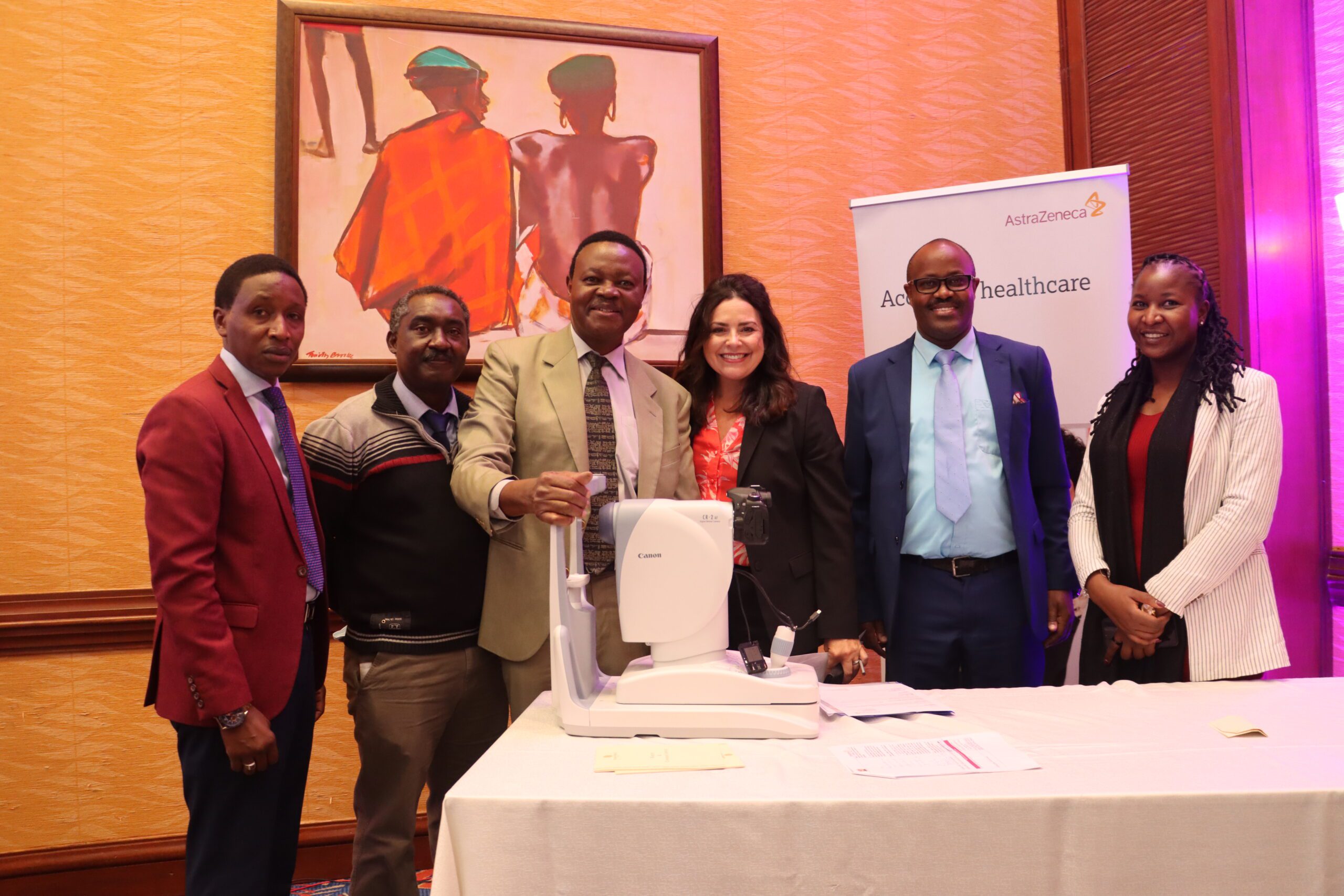advertisement
AstraZeneca Donates New Innovative Medical Equipment to Kenya

Kenyan Medical Institutions have received equipment that will enable them to conduct research on the use of non-invasive technology to predict the risk of hypertension, diabetes, eye conditions and other medical conditions through retinal scanning.
The institutions include the Kenya Medical Research Institute (KEMRI), Kenyatta National Hospital (KNH)/ The University of Nairobi (UoN), and the Aga Khan University Hospital (AKUHN). These institutions have received the donated innovative equipment courtesy of AstraZeneca and the Kenya Ministry of Health.
The World Health Organization (WHO) estimates that Non-Communicable Diseases (NCDs) account for up to 70% of global deaths. In Kenya, NCDs account for 39% of deaths. These statistics date back to 2015 so there are concerns that the numbers could be higher.
advertisement
In this regard, the government of Kenya is partnering with development to collect data that will help better manage the situation. According to Prof. Silvester Kimaiyo, the Executive Director of AMPATH Care, the data has been collected for a while but the problem has been how to use the data.
“Within every medical facility, there is so much data generated and one of the challenges we have is that the use of such data is a problem,” Prof Kimaiyo said.
Speaking at the donation event, AstraZeneca’s Vice President, Ashliny Mulvancy, said that the partnership the company is having with non-traditional actors couldn’t be timelier.
advertisement
“We are living during unprecedented times and we have seen through the pandemic, how working together with non-traditional actors can accelerate and make things happen quicker for the sake of our patients,” she noted.
The equipment donated by AstraZeneca and the Ministry of Health can be used to screen for hypertension and diabetes by looking at the retina. This can be used to screen for both diabetes and hypertension simultaneously.
On his part, the Chief Administrative Secretary (CAS) of the Ministry of Health Dr. Rashid Aman, promised that the government will do more in the fight against NCDs.
advertisement
“For a long time, it was not a problem for us but it has now emerged as a problem. A while back, we did not have systems of collecting data but over the years we have put together systems that collect accurate data. The plan is to now to leverage the system and collect more data on NCDs,” Dr Aman commented.